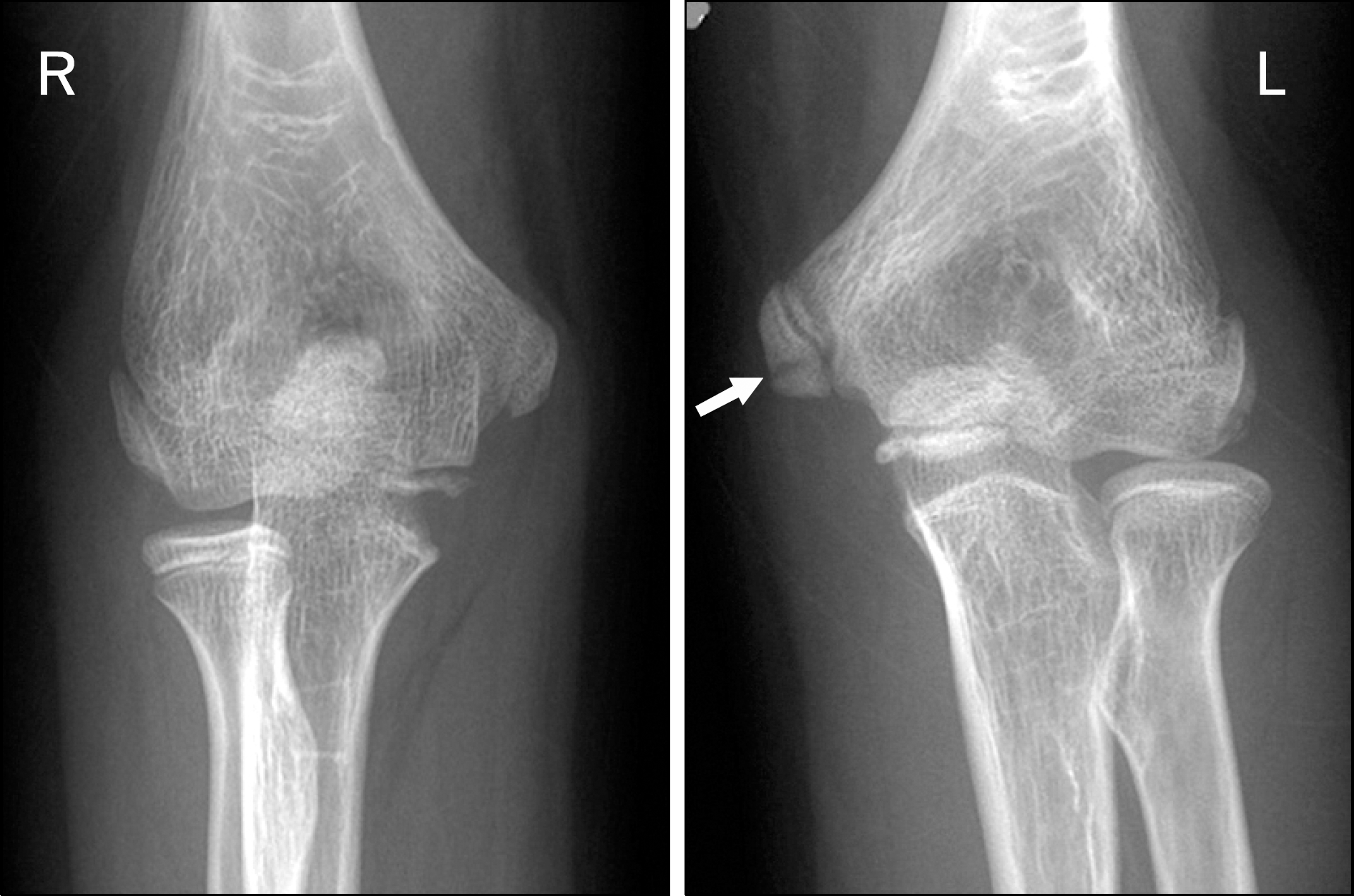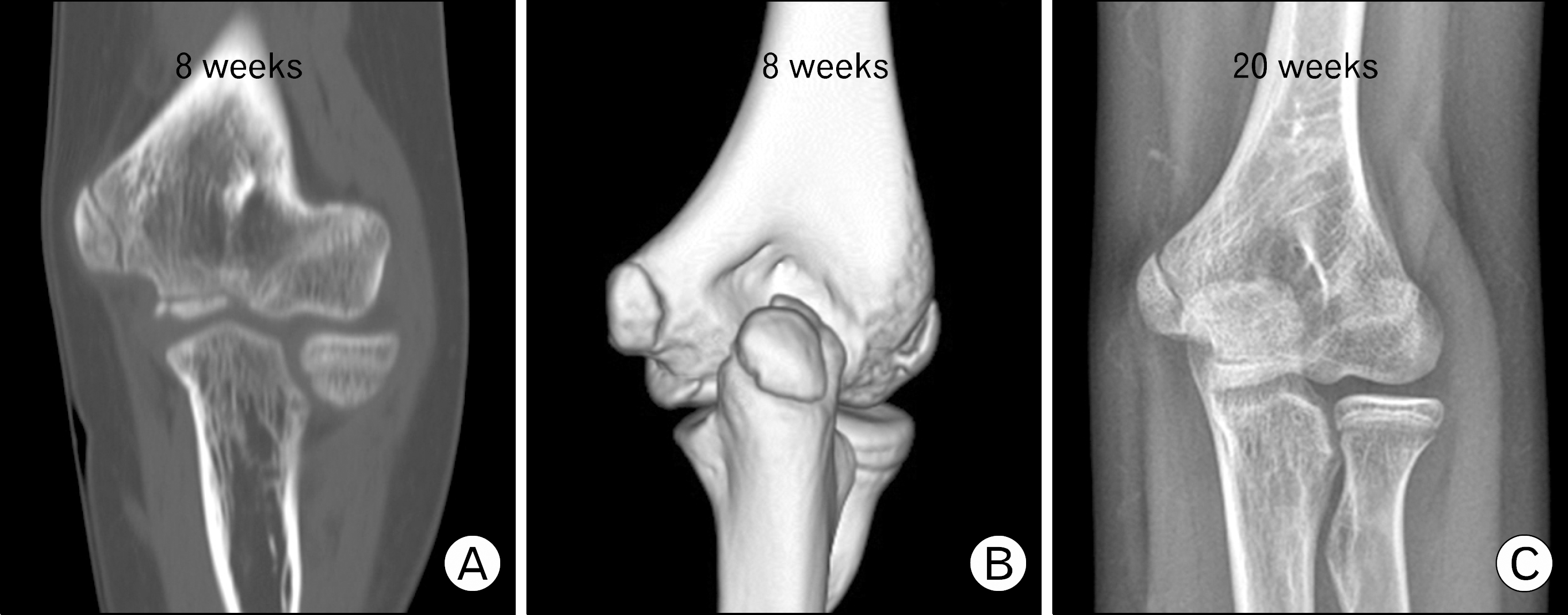Abstract
Overuse elbow injuries in young throwing athletes are generally defined as ‘Little Leaguer's elbow’. Repetitive submaximal valgus forces on the medial epicondylar apophysis in such athletes can result in apophyseal separation or chronic apophyseal fragmentation, which would usually take over more than a year to heal. We report of a unique case of a 13-year-old male baseball pitcher who, due to the traction of the medial collateral ligament, presented with an acute IntraApophyseal avulsion fracture of the medial epicondyle. The fracture was successfully healed using a long arm cast, and correct union was confirmed by 3 dimensional computed tomography at 8 weeks post-trauma. This acute avulsion fracture is a variant of Little Leaguer's elbow and should be distinguished in terms of diagnosis and treatment from common lesion such as chronic fragmentation of the medial epicondylar apophysis.
References
1. Brogdon BG, Crow NE. Little leaguer's elbow. Am J Roentgenol Radium Ther Nucl Med. 1960; 83:671–5.
2. Adams JE. Injury to the throwing arm: a study of traumatic changes in the elbow joints of boy baseball players. Calif Med. 1965; 102:127–32.
3. DeFelice GS, Meunier MJ, Paletta GA. Elbow injury in the adolescent athlete. Altchek DW, Andrews JR, editors. The athlete's elbow. Philadelphia: Lippincott Williams and Wilkins;2001. p. 231–48.
4. Pappas AM. Elbow problems associated with baseball during childhood and adolescence. Clin Orthop Relat Res. 1982; 164:30–41.

5. Osbahr DC, Chalmers PN, Frank JS, Williams RJ 3rd, Widmann RF, Green DW. Acute, avulsion fractures of the medial epicondyle while throwing in youth baseball players: a variant of Little League elbow. J Shoulder Elbow Surg. 2010; 19:951–7.

6. Grumet RC, Friel NA, Cole BJ. Bony avulsion of the medial ulnar collateral ligament in a gymnast: a case report. J Shoulder Elbow Surg. 2010; 19:e1–6.

7. Matsuura T, Kashiwaguchi S, Ikaata T. A follow up study of humeral medial epicondyle lesion among young baseball players. Jpn J Orthop Sports Med. 1997; 17:43–9.
8. Simanovsky N, Lamdan R, Hiller N, Simanovsky N. The measurements and standardization of humerocondylar angle in children. J Pediatr Orthop. 2008; 28:463–5.

Fig. 1.
Anteroposterior radiographs of the both elbow show evidence of an avulsion fracture (white arrow) of the inferior portion of the left medial epicondylar apophysis.

Fig. 2.
(A, B) Initial computed tomography and 3 dimensional reconstruction images show displaced avulsion fracture (white arrow head) and (C) coronal T2-weighted magnetic resonance image shows a intraapophyseal fracture gap (white arrow head) and minimal bone marrow edema and the anterior bundle of medial collateral ligament is attached to the bony fragment (white arrow).





 PDF
PDF ePub
ePub Citation
Citation Print
Print




 XML Download
XML Download